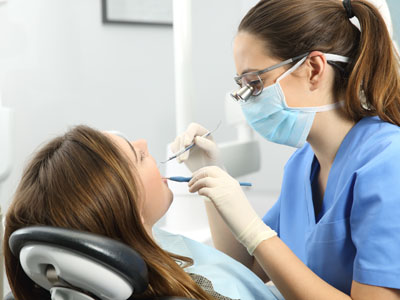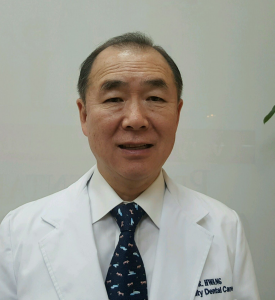

Although these two conditions are largely preventable, dental decay (caries) and periodontal disease, which is more commonly known as gum disease, represent the two biggest threats to your oral health. As part of an effective program of preventive care, thorough periodic cleanings at the dental office along with guidance in the best methods of brushing and flossing at home, play an essential role in warding off the development of cavities as well as the onset and progress of periodontal disease.
A routine dental cleaning as performed by the dentist or dental hygienist involves the thorough removal of any accumulated plaque and tartar from areas that your toothbrush and floss have not reached. Since dental plaque harbors the bacteria that are responsible for cavities and gum disease, its removal prevents these disease processes from occurring. Following a dental cleaning and polishing, which is performed to remove any superficial stains from your teeth, your mouth will feel fresh and clean.
Checkup and cleaning visits also represent an important opportunity to educate patients in the best oral hygiene homecare methods and routines to maintain a healthy smile. Your dental team will carefully explain and demonstrate proper techniques for brushing, flossing and other oral care practices at your initial dental appointment and subsequent recall visits.
According to the National Institute of Dental and Craniofacial Research, tooth decay is the single most common chronic childhood disease. Over 50 percent of 5 to 9 year old children have at least one cavity or filling, with that proportion increasing to 78 percent among 17-year-olds. Additionally, more than 51 million school hours are lost each year to dental-related illness.
As an added level of protection against dental decay, it is recommended that children receive periodic fluoride treatments as part of a program of preventive dental care. Fluoride is a naturally occurring mineral that helps to prevent cavities by making the hard outer enamel of the teeth more resistant to the acids produced by the harmful sugar processing bacteria in dental plaque. It can also help to remineralize the teeth to reverse incipient decay.
During a periodic checkup visit, the dentist may recommend the application of a topical fluoride to help strengthen and protect both a child’s baby teeth and the permanent ones. Topical fluorides can be applied as a foam, gel or varnish. Whatever type is selected, the procedure is quick and painless. Once the teeth are cleaned the fluoride is simply painted on the surfaces of the teeth or placed in a small tray to sit over the teeth for a brief period of time. Some types of fluoride treatment require no eating or drinking for half an hour as the fluoride is absorbed into the surface of the teeth. The dentist and dental hygienist will provide specific and detailed instructions as needed.
Fluoride treatment may also be indicated in adults who are at a higher risk for developing tooth decay.
Dr. Bob Hwang, better known to his patients as Dr. Bob, received his Doctorate in Dental Medicine from the University of Medicine and Dentistry of New Jersey (UMDNJ) in 1981. Dr. Bob has proudly served as a dentist in the U.S. Army Dental Corp from 1981 to 1997. He has a talent of making his patients feel at ease and treating them with respect and compassion. His passion for dentistry is ever so strong even after all these years which benefits his patients greatly. Everyday, Dr. Bob strives to reduce cost, time and pain for his patients. Outside of dentistry, his passion involves serving his church and playing Ping Pong for better hand to eye coordination.


